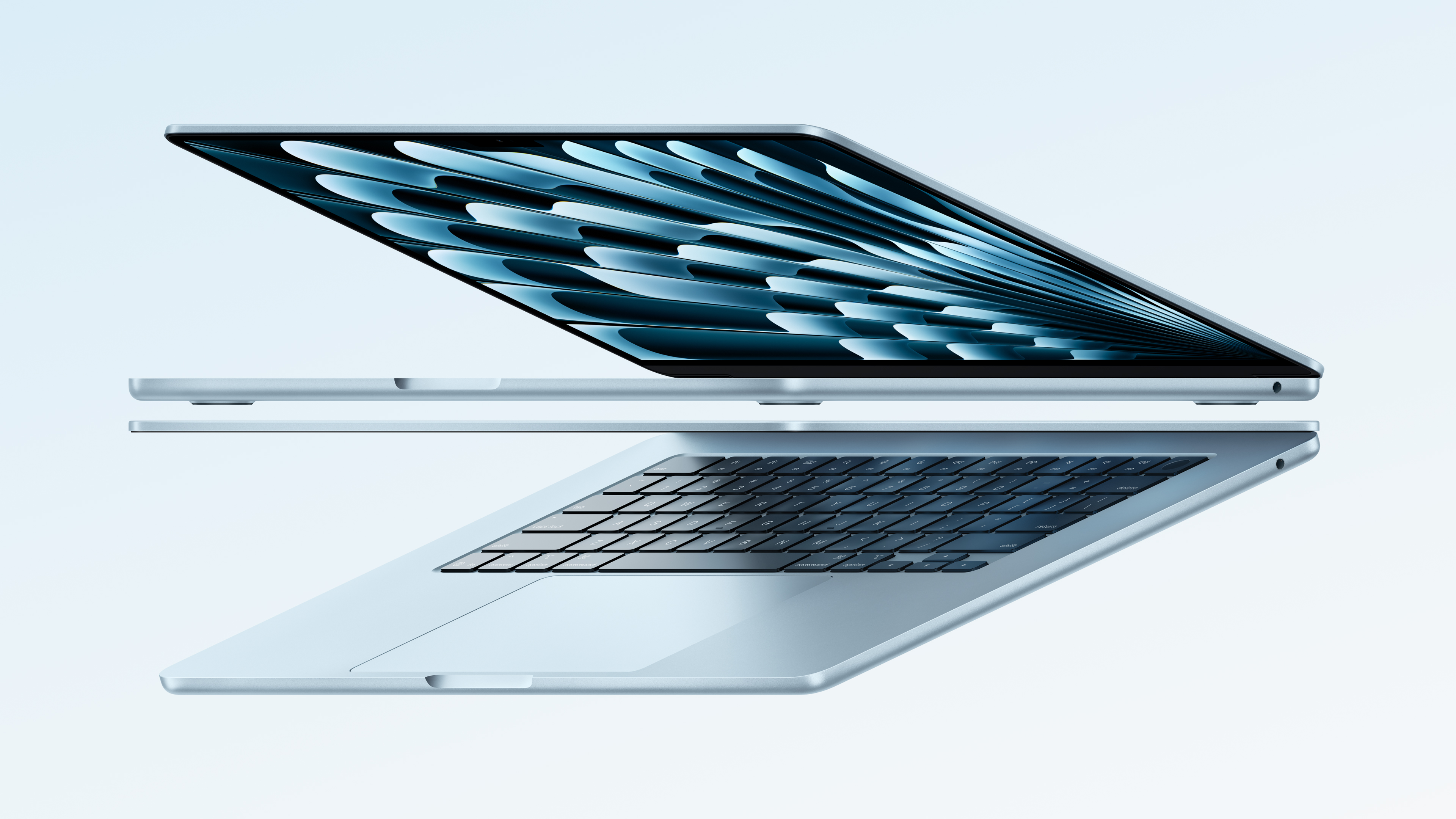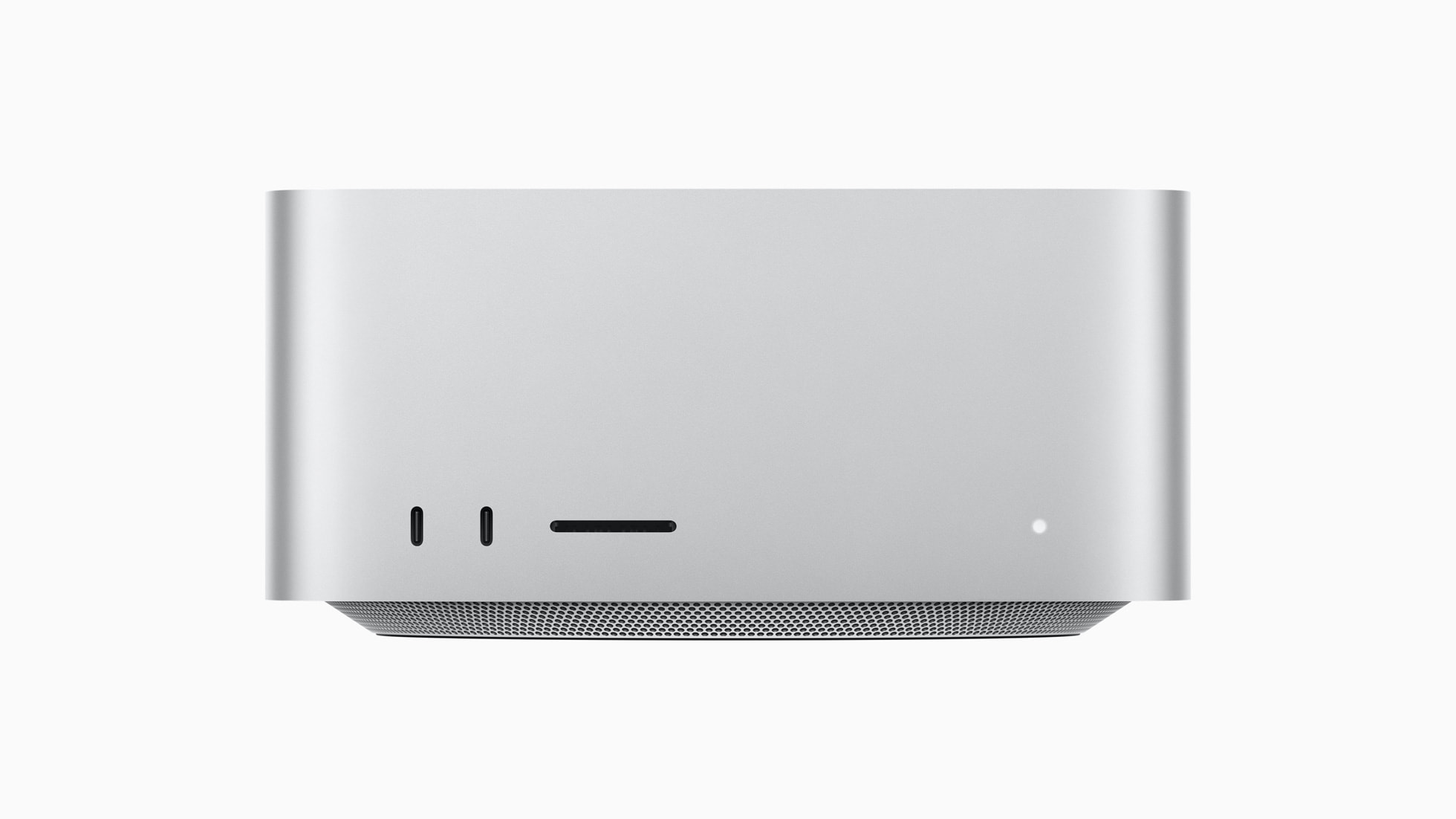If you steal the macbook, all routers will be more expensive, of courseI'm not sure what you're looking at but I've gotten mine for less than $250.
Got a tip for us?
Let us know
Become a MacRumors Supporter for $50/year with no ads, ability to filter front page stories, and private forums.
Unlike iPhone 16 Models, Apple's Newest Macs Lack Wi-Fi 7 Support
- Thread starter MacRumors
- Start date
- Sort by reaction score
You are using an out of date browser. It may not display this or other websites correctly.
You should upgrade or use an alternative browser.
You should upgrade or use an alternative browser.
I honestly could read the thread but, experience tells me that the 12 people this potentially might affect (if they actually had the money to buy one) will not only be outraged but also take great pleasure in telling us how corporate blah blah… innovation failure… fan boy rant… sorta stuff…. and things n’ that…
Apple introduced new MacBook Air and Mac Studio models this week, adding faster and more efficient M4 and M3 Ultra chips, along with some other updates like Thunderbolt 5 ports for the Mac Studio. One upgrade we have not seen though is support for the latest Wi-Fi specification, Wi-Fi 7.

Both the new M4 MacBook Air and Mac Studio models continue to offer Wi-Fi 6E. While it does offer access to the 6GHz band on supported Wi-Fi 6E and Wi-Fi 7 routers, it's not the latest or fastest technology.
Wi-Fi 7, also known as IEEE 802.11be, promises theoretical speeds up to four times faster than its predecessor, as well as reduced latency and improved handling of multiple device connections. Its standout feature is Multi-Link Operation (MLO), which can combine several frequencies across different bands into a single connection for potentially better performance and stability.
Apple's decision not to equip the new Macs with Wi-Fi 7 isn't completely unexpected, given that the MacBook Pro models with M4 chips launched last year also do not feature Wi-Fi 7 support. Still, it's an odd decision when you consider that all iPhone 16 models released in September include Wi-Fi 7 chips from Broadcom.
That said, the current reality of Wi-Fi 7 adoption makes its absence in Apple's new Macs less significant. Yes, the iPhone 16 series includes Wi-Fi 7 support, but Apple has limited its implementation to the 160MHz bandwidth instead of the full 320MHz that the standard allows. In other words, iPhone 16 models aren't taking full advantage of Wi-Fi 7's potential speed improvements.

The existing Wi-Fi 6E support in M4 Macs already provides access to the less congested 6GHz band, offering solid performance for current networking needs. Granted, Wi-Fi 7 could have provided some future-proofing for Mac buyers, but its practical benefits won't be widely accessible for some time.
In sum, for most Mac users, the absence of Wi-Fi 7 shouldn't be a deciding factor when considering an M4 Mac purchase. The technology remains in its early stages, and Wi-Fi 6E continues to offer robust performance for typical computing tasks, including video conferencing, cloud gaming, and high-resolution streaming.
Article Link: Unlike iPhone 16 Models, Apple's Newest Macs Lack Wi-Fi 7 Support
will resultantly mean that the universe will end imminently…
Apologies if I’m off on this one.
Looks good though, eh? (Queue the dissent)
Been around too long me.
I use three UniFi U7 Pros at home and I get around 1200Mbps on my iPhone 15 Pro Max using 6E maybe about 15 ft away. If I go further away typically is 500-600 Mbps at the worst in my house. Don’t see any need for faster at this time.
To get good speeds everywhere with 6Ghz you will need multiple access points or something like a more expensive UniFi E7 may work.
To get good speeds everywhere with 6Ghz you will need multiple access points or something like a more expensive UniFi E7 may work.
TP-Link isn’t a reliable nor secure brand to use for your home network if you work from home and work in IT/Tech/Telecom/etc.
Are you saying that you don't use VPN from your PC?
Or are you saying that the TP-Link routers capture encrypted traffic en-masse and forward to China for decryption and analysis?
Or that the Tp-Link device can decrypt the VPN traffic locally and then forward only the interesting data to China?
Or something else?
If an M1 Mac is fast enough for you, you won't really find any benefit from WiFi 7... Basically, if you aren't loading large video projects or similar sorts of large data models over WiFi, you won't really see much benefit - and if you are doing that sort of work, you should be looking at 10gbps Ethernet for stability anyway.WiFi 7 is the deciding factor for me. Our office is fully equipped with WiFi 7 now, and when it comes to Apple Silicon, my M1 is already more than fast enough for my needs. A processor bump won't make me upgrade on its own.
To be honest, much of the benefit of WiFi 7 is on the router end, allowing more throughput and spectrum separation to allow more devices to communicate more quickly. But, we are talking in the range of 50+ devices with high data throughput needs being connected to a WiFi 7 mesh. For home use or small offices, there will be little benefit from WiFi 7 (it is like mm Wave 5G, theoretically great, but provides enough data to hit your monthly cap in a few seconds) and isn't really needed by 99.9% of applications.
I get it and appreciate the addition. I failed to add that sort of information to my post. I think, considering things currently, my old routers are still doing well in this area too. I occasionally have buffering with one Apple TV but I’m not sure it’s something that would be fixed with an update. At some point, I will replace everything with a Ubiquiti install and will find out then or I thought about a MOCA but the adapters are too expensive just to solve an issue that occurs 1-2 times per evening. It’s a rare event really but annoying when it happens. Thanks for the reply.The main benefit for normal home users of wifi7 (or even, wifi6) over your current wifi5 is not speed but rather handling multiple simultaneous connections and dealing with congestion. The newer standards have a more robust MU-MIMO support, and multi-link operations. These things aren't about speed per se, but rather about making each single connection more reliable.
My time machine died about 6 months ago, the hard drive gave up. I was going to swap the drive but before I did, a fan in one of my extremes died causing the router to shut down. It’s the same fan so I ended the time machines run by taking the working fan and with no fan or drive I let it go. I would have gone the other way with the repair but already had an older external drive direct connected to my iMac for backups.I still use my 2013 Time Machine for backups only. How I miss those airport days.
Macs and iPhones and iPads are premium products and should have leading edge technology like FULL WiFi 7, not a crippled version or absence of it. You may not need it right away but in a year you’ll want it. This is inexcusable to save about 90 cents.
Not really that much more than 6e ones either though 🤷He's probably talking about a Mesh package. Those are still $$$ for 7.
Even if Wi-Fi 7 was present, it wouldn't be the full version.
Is that because they don't have full versions of Wifi 6 or 6E?
I'm talking about Wi-Fi 7 on the iPhone 16 and iPhone 16 Pro.
What's wrong with Wifi 7 on the iPhone 16 and 16 Pro?
Like I said, nevermind, so move on.
Let me help you.
You're likely referring to the 320Mhz channel and the 4K-QAM modulation.
You didn't realize that those are optional for the wifi 7 specification? No, you must surely have know that, and you'd also know that there are even Wifi 7 deployments that don't support 6Ghz at all. So I guess just trolling.
Register on MacRumors! This sidebar will go away, and you'll see fewer ads.


